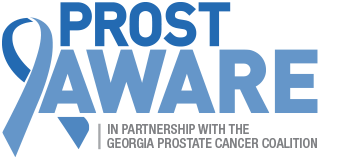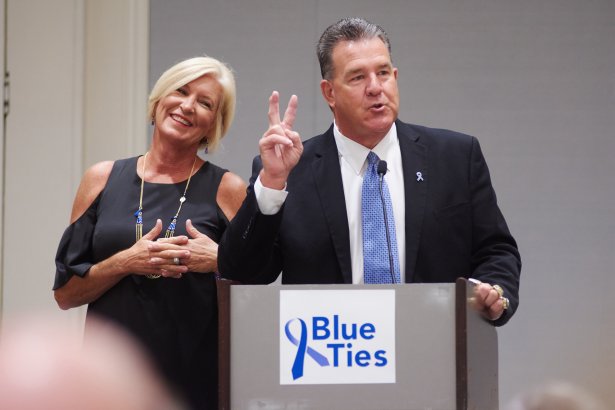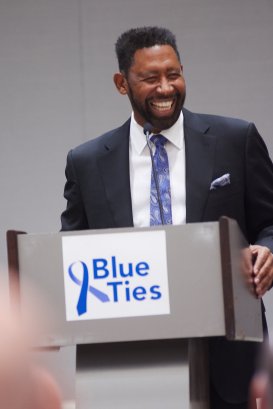Three years ago, former NFL lineman Jeff Bostic went to his doctor with symptoms of a sinus infection.
His doctor told him it was time to have a broader check-up.

Three days after getting that physical, he got a call from the doctor.
Bostic, who lives in suburban Atlanta, recalled recently what the doctor said that day: “Your PSA has gone up considerably.’’
The PSA test is a blood test used primarily to screen for prostate cancer. Bostic’s PSA had jumped from 2.4 to 8.2, the doctor said. Men with prostate cancer often have PSA levels higher than 4, although cancer is a possibility at any PSA level.
Bostic, who anchored the HOGS offensive line of the Super Bowl-winning Washington Redskins, underwent surgery soon after the PSA finding.
“I don’t think anyone wants to hear that you have cancer, ’’ he said. Before he heard about the PSA result, “I didn’t know anybody who had prostate issues ever.’’
Bostic, 58, now knows a lot about the disease. He and his wife, Lynn, spoke to an Atlanta event Friday that aimed to raise awareness of prostate cancer.
Aside from non-melanoma skin cancer, prostate cancer is the most common cancer among men in the United States.
In 2014, the most recent year for which numbers are available, the CDC reported that more than 170,000 men in the United States were diagnosed with prostate cancer, and 28,000 died from the disease.

Yet despite this toll, there has been conflicting advice about PSA testing.
A federal task force five years ago recommended against routine screening for prostate cancer. The U.S. Preventive Services Task Force said the PSA screening test often suggested that prostate cancer might be present when there was no cancer — a result known as a “false positive.” Such results cause worry and anxiety and can result in follow-up tests and procedures, such as biopsies, that aren’t needed, the task force said.
This opposition to routine screening proved controversial, and earlier this year the organization relaxed its position.
The new recommendation of the task force said men ages 55 to 69 should decide individually with their doctors whether and when to undergo PSA testing
The clear message at the “Blue Ties’’ luncheon Friday in Atlanta was to support screening.
The event was sponsored by ProstAware, a prostate cancer awareness resource for men and their families in metro Atlanta. (September is Prostate Cancer Awareness month.)

Another prostate cancer survivor who spoke at the event was William King, a member of the musical group The Commodores.
King, 68, described his shock at first hearing the word “cancer’’ in connection with his own health. He was diagnosed three years ago. “It was quite a scare for me.”
“In my family, cancer was taboo,’’ said King. “It was the scariest thing that could ever be said in a minority family.”
African-American men have, by far, the highest incidence of the disease. They are roughly 1.6 times more likely to develop prostate cancer than white Americans and 2.6 times more likely to get it than are Asian-Americans
The gap in mortality rates is even more dramatic: African-Americans are more than twice as likely to die of prostate cancer as white Americans and about five times more likely to die of it than Asian-Americans.
The gap has been linked, in part, to genetic factors.
In addition, research has shown that lack of health insurance coverage, unequal access to health care services, and absence of ties to a primary care physician are barriers to screening for prostate cancer and the timely diagnosis of the disease. That may make African-American men, as a statistical group, less likely to receive regular physical examinations and screening for prostate cancer
King said, “The bottom line is there are a lot of people out there that need to be told, ‘This is not taboo.’ ”
Both King and Bostic recently had radiation treatments.
“If you turn off the lights, I would glow,’’ Bostic joked.
Their takeaway message? “Get checked,’’ Bostic said. “Early detection is key.”

